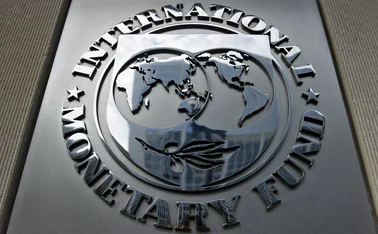
IMF agrees with Fed on ‘transitory’ inflation
Georgieva says recent inflation spike likely to pass; supports Biden’s fiscal plans

The International Monetary Fund’s Kristalina Georgieva has given broad support to US fiscal and monetary policies, arguing a recent surge in inflation will soon pass.
The IMF managing director spoke on July 1 as the fund concluded Article IV consultations with the US, the fund’s most influential member-state.
The managing director stated her support for the Federal Reserve’s current monetary policies. She concurred with Fed leaders that a recent spikes in US price rises is not likely to endure.
“The evidence suggests that this inflation will be transitory and is largely a product of relative price movements that are occurring as the economy rebounds from the impact of the pandemic,” she said. The IMF chief added that “we do not see overheating as the most likely outcome”.
Georgieva also said that the Fed’s adoption of average inflation targeting was “timely”. She expressed faith that the US central bank would be able to communicate monetary policy effectively and anchor inflation expectations. “We anticipate that such transparent and proactive communications will continue as asset purchases are scaled back,” she said.
The Fed adopted average inflation targeting in August 2020, aiming for 2% inflation over the medium term, which entails a period of overshooting when inflation has been below target.
The fund expects core inflation will approach 4% at year’s end and fall to 2.5% at the end of next year, Georgieva said. At its June meeting, the Fed estimated median core personal consumption expenditure inflation would be 3% in 2021, and 2.1% in 2022.
Fed leaders have debated publicly when and whether to begin discussing the tapering of asset purchases. After the Federal Open Market Committee’s June meeting, Powell suggested “we retire” the phrase “talking about talking about tapering”, which journalists had widely used previously.
Last week, San Francisco Fed president Mary Daly told Associated Press that “it is appropriate to consider tapering asset purchases later this year or early next year”. However, she added she did not expect to eliminate “the majority of [asset purchases]”.
Fiscal and other policies
Speaking about wider macroeconomic and fiscal matters, Georgieva said that the IMF expected the US economy to grow by 7% in 2021. Georgieva called this “great news for the US, but also really good news for the world economy”. The fund’s estimates assume that Congress will pass the two remaining parts of US president Joe Biden’s stimulus programme, the American Jobs Plan and the American Families Plan.
Georgieva noted “these two packages would put in place many of the policies proposed in Article IV consultations over the past several years”. She said that the two programmes “are expected to produce a lasting improvement in income and living standards for many years to come”. Georgieva welcomed the bipartisan agreement on infrastructure, which covers a portion of the larger Biden programme.
The first Biden fiscal package, the $1.9 trillion American Rescue Plan, became law in March.
The managing director also backed the Biden administration’s trade, taxation and environmental policies. She supported plans for a global minimum corporate tax rate. Talks at the Organisation for Economic Co-operation and Development produced a preliminary agreement on a 15% minimum tax rate on July 1.
Joseph Gagnon, a senior fellow at the Peterson Institute for International Economics, says it is “striking” how clearly the IMF had come out in favour of US policies. “My guess is that IMF staff genuinely supports what Biden is doing and these comments are implicit criticism both of US politicians who oppose Biden and of other countries the IMF thinks are being too timid on recovery and inflation, such as Europe and Japan.”
Mark Sobel, a former US Treasury official and IMF executive director, says the fund would be unlikely to offer such a clear endorsement of major fiscal spending in ‘normal’ times. “But the fund’s advice is calibrated to the current situation as a means of overcoming the pandemic in a country that has fiscal space.”
Sobel stresses the fund has always had close relations with the Fed and Treasury, even when the fund and US officials have differed on policy.
Only users who have a paid subscription or are part of a corporate subscription are able to print or copy content.
To access these options, along with all other subscription benefits, please contact info@centralbanking.com or view our subscription options here: http://subscriptions.centralbanking.com/subscribe
You are currently unable to print this content. Please contact info@centralbanking.com to find out more.
You are currently unable to copy this content. Please contact info@centralbanking.com to find out more.
Copyright Infopro Digital Limited. All rights reserved.
You may share this content using our article tools. Printing this content is for the sole use of the Authorised User (named subscriber), as outlined in our terms and conditions - https://www.infopro-insight.com/terms-conditions/insight-subscriptions/
If you would like to purchase additional rights please email info@centralbanking.com
Copyright Infopro Digital Limited. All rights reserved.
You may share this content using our article tools. Copying this content is for the sole use of the Authorised User (named subscriber), as outlined in our terms and conditions - https://www.infopro-insight.com/terms-conditions/insight-subscriptions/
If you would like to purchase additional rights please email info@centralbanking.com
Most read
- ECB says iPhone is currently incompatible with digital euro
- Supervisors grapple with the smaller bank dilemma
- ‘Do I die, or do I survive?’ Officials reflect on Basel III complexity








